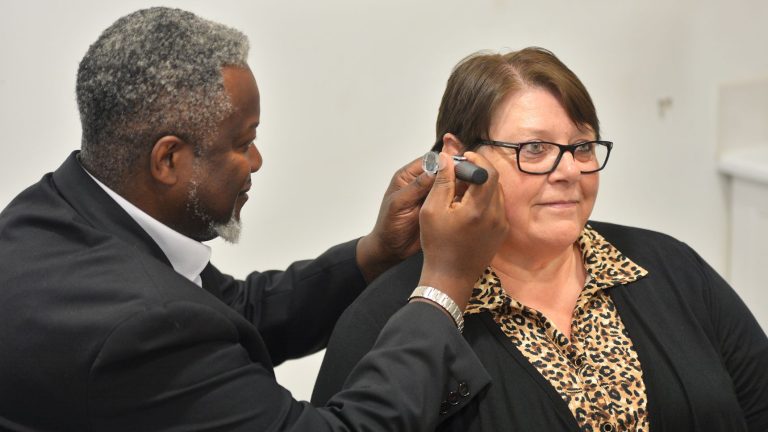What is sudden sensorineural hearing loss (SSHL)?
Sudden sensorineural hearing loss (SSHL), or sudden deafness, is an unexplained, rapid loss of hearing that can happen at once or over a few days. While not common, it’s estimated to affect between 5 and 20 people per 100,000. SSHL is most commonly experienced by adults in their late 40s and early 50s, but it can affect people of all ages.
Although for some, it may be a temporary problem and their hearing recovers, it could be permanent for others. So, it should be considered a medical emergency and immediate medical attention is necessary.
Symptoms of sudden hearing loss
Symptoms for SSHL may include:
- Noticeable hearing loss after waking up.
- Diminished hearing after a loud pop in one ear.
- The feeling of ear fullness.
- Dizziness.
- Ringing in the ears (tinnitus).
- Difficulty hearing a phone call.
- Difficulty hearing normal speaking voices; it may be heard as a whisper.
- Sounds may seem to be a much lower volume.


